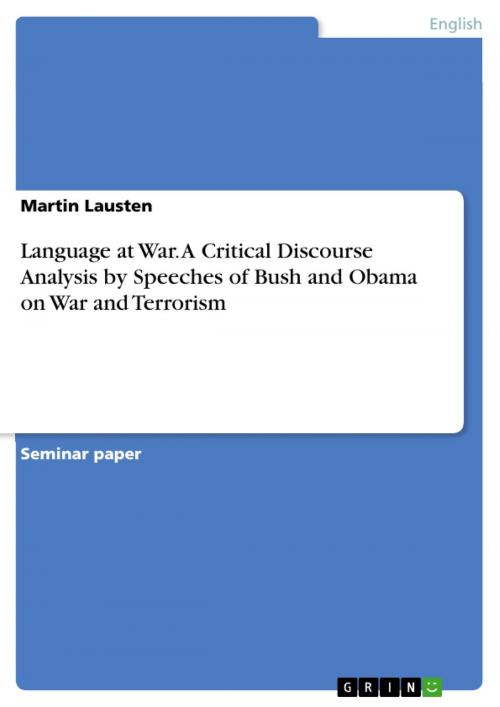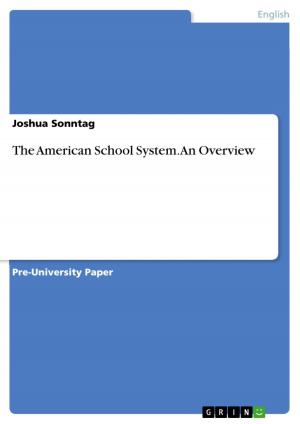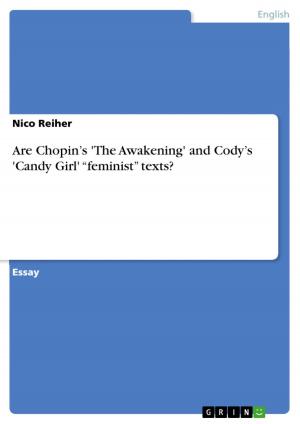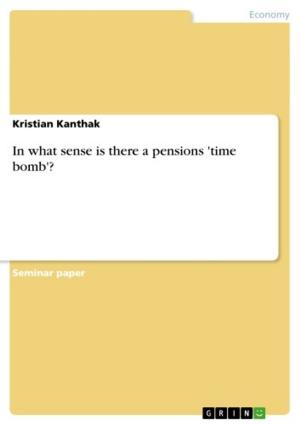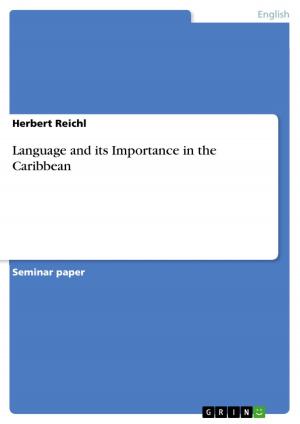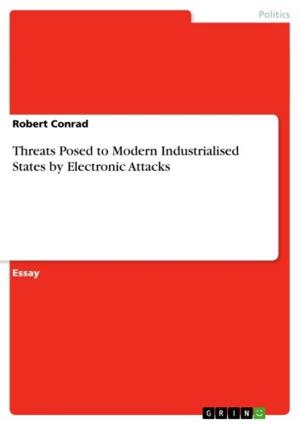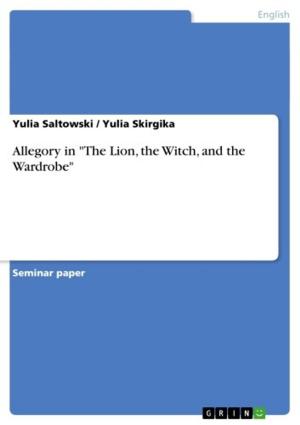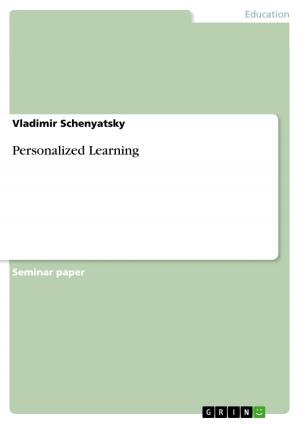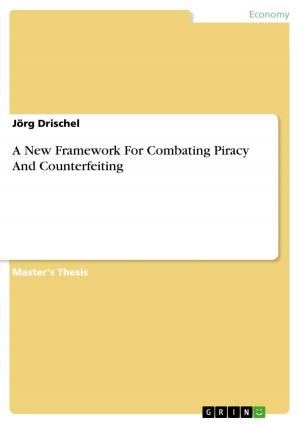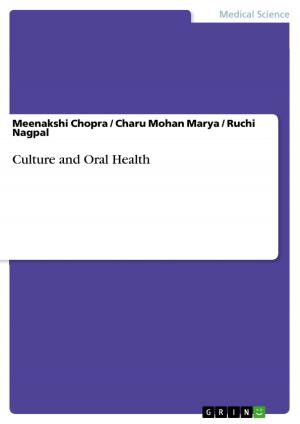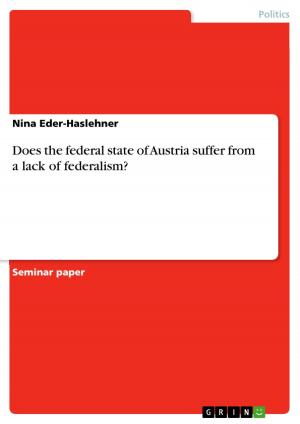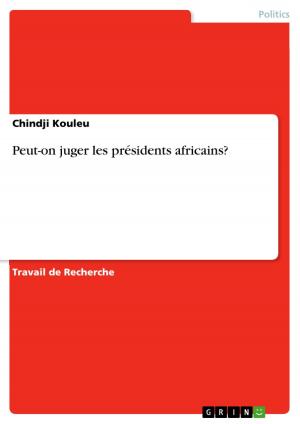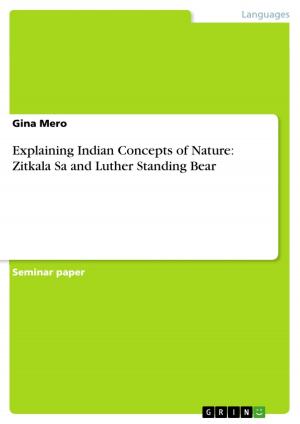Language at War. A Critical Discourse Analysis by Speeches of Bush and Obama on War and Terrorism
Nonfiction, Reference & Language, Study Aids, ESL, Foreign Languages| Author: | Martin Lausten | ISBN: | 9783668237728 |
| Publisher: | GRIN Publishing | Publication: | June 9, 2016 |
| Imprint: | GRIN Publishing | Language: | English |
| Author: | Martin Lausten |
| ISBN: | 9783668237728 |
| Publisher: | GRIN Publishing |
| Publication: | June 9, 2016 |
| Imprint: | GRIN Publishing |
| Language: | English |
Seminar paper from the year 2014 in the subject English Language and Literature Studies - Culture and Applied Geography, grade: A+, , course: Discourse and Society, language: English, abstract: On the basis of Norman Fairclough's Critical Discourse Analysis this work will examine the discourse in two speeches by George W. Bush and Barack Obama to determine in what way they legitimize the War on Terror. Although speeches on terrorism have been part of American politics for a long time, since 2001 as a result of the 9/11 attacks on the World Trade Center in New York, they seem to have become more important, both with ex-President Bush and the current President Obama. On the morning of September 11, 2001 the world changed with the terrorist attacks and then the political discourse surrounding the event changed our understanding of the event even further. The world witnessed a great act of terrorism. In the weeks, months, and years to come Bush gave a series of speeches in which he focused on terrorism, leading up to the coinage of the 'Axis of evil'. However, in his first post 9/11 speech, Bush's discourse categorized the terrorist as 'evil', and in his first speech to Congress post 9/11 we hear for the first time the phrase 'War on Terror'. This phrase has come to define the presidency of George Bush. It was inherited and further refined by President Obama and has now also to a degree come to define his presidency. In September 2014 Obama held a speech on ISIL and declared them a terrorist organisation with barbaric values. Though 13 years had passed and a democratic President had replaced a Republican President, these words sounds very similar to some of the words which Bush used in his speech.
Seminar paper from the year 2014 in the subject English Language and Literature Studies - Culture and Applied Geography, grade: A+, , course: Discourse and Society, language: English, abstract: On the basis of Norman Fairclough's Critical Discourse Analysis this work will examine the discourse in two speeches by George W. Bush and Barack Obama to determine in what way they legitimize the War on Terror. Although speeches on terrorism have been part of American politics for a long time, since 2001 as a result of the 9/11 attacks on the World Trade Center in New York, they seem to have become more important, both with ex-President Bush and the current President Obama. On the morning of September 11, 2001 the world changed with the terrorist attacks and then the political discourse surrounding the event changed our understanding of the event even further. The world witnessed a great act of terrorism. In the weeks, months, and years to come Bush gave a series of speeches in which he focused on terrorism, leading up to the coinage of the 'Axis of evil'. However, in his first post 9/11 speech, Bush's discourse categorized the terrorist as 'evil', and in his first speech to Congress post 9/11 we hear for the first time the phrase 'War on Terror'. This phrase has come to define the presidency of George Bush. It was inherited and further refined by President Obama and has now also to a degree come to define his presidency. In September 2014 Obama held a speech on ISIL and declared them a terrorist organisation with barbaric values. Though 13 years had passed and a democratic President had replaced a Republican President, these words sounds very similar to some of the words which Bush used in his speech.
